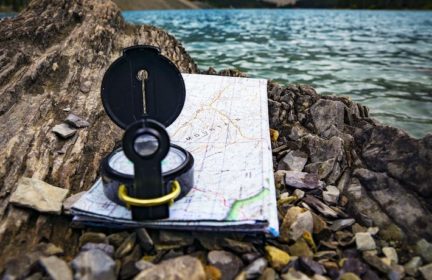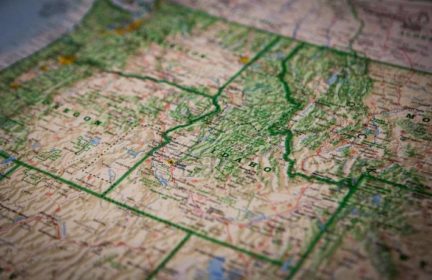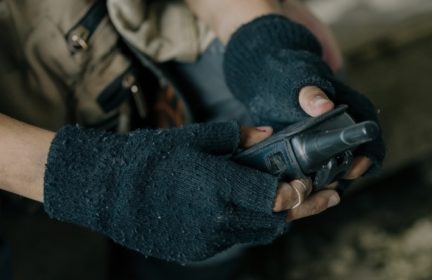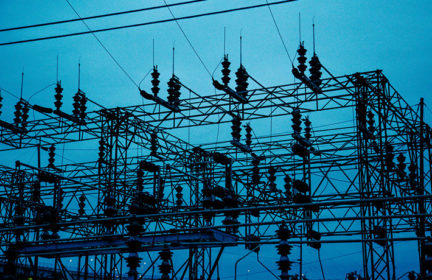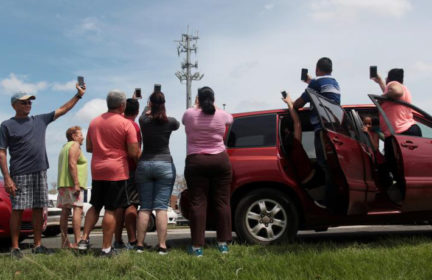Communication strategy during disaster
Hello!
Looking for recommendations on portable communication options during a disaster.
Scenario – a disaster strikes while I’m at work (about 36 miles from my house). Could be EMP / solar flare, terrorist attack, we all have our own list of scenarios. Let’s say cell phones don’t work (EMP, etc) or let’s say cellular phone calls won’t go through because everybody is trying to make phone calls (this happened on 9/11).
I want to be able to communicate with my husband, who works from home, with a portable communication option that won’t be affected by an EMP / solar flare and isn’t a cell phone.
What would you recommend? I haven’t had much luck finding a walkie-talkie option that I feel could reliable transmit across a 40ish mile distance – I live and work in a very hilly / mountain area in northern New England.
I figured I would ask this community before buying something and having to bother with multiple returns!
-
Comments (16)
-
Bob - April 19, 2021
Good evening LNMOt,
You’re presenting a large arena of disaster types.
If the disaster is a terrorist event, it’s magnified for border areas and would guess northern New England qualifies. I can write in confidence that private citizen electronic commnications will not be available until authorities announce “all clear”.
The natural disasters such as EMP / solar flares … if a combination natural – organizational … will yield the same lack of electronic communications like a terrorist event.
Here, during a terrorist event (“Beltway Sniper”) even using cloth semaphore flags was watched for.
My recommendation is to visit (first choice) your state’s Dept of Emergency Management and ask for some guidance. Communications devices are expensive enough to consider meeting to discuss.
-
Alicia - April 19, 2021
I too have similar challenges but in an EMP I don’t know anything besides a planned meeting place. I have purchased the HAM radios recommended here on TP (and beginner’s guide here) but haven’t gotten our licenses to test them out yet. The HAM community may help and also can get to repeaters potentially. Regardless, they are likely a good source of info as the emergency responders can be monitored If that doesn’t work because of the terrain, we may need to invest in a Global hotspot which was reviewed here on TP too. That’s quite an investment, though.
-
Robert LarsonContributor - April 20, 2021
I second what Alicia is saying. Those are all good links and resources she has linked to as well.
LNMOt – Ham radio is going to probably be your best bet for distance. But an EMP will theoretically knock out these sources of communications as well. From my minimal amount of research, an EMP is going to kill most electronics from your car, to the power grid, your computer, even your wrist watch. That is unless there is adequate shielding to protect them as shown in this blog post. And even then, you might not be able to reach your husband at home from your work those 36 miles because of all the hills and terrain in between.
So here’s what I would do.
- Look into ham radio a bit more and see if you want to invest the time and money into this form of communication. (it’s really not that bad)
- Buy some radios, get your license
- Do some test runs. Husband stays at home, you drive 5 miles and try and reach him. Drive 5 more miles and try to reach him….
- Mark the points on a map where you are able to reach each other
- Create an emergency communications plan.
I can see your emergency communications plan looking something like this:
If normal communications are down (ie. cell phone, internet, email, text, etc…) then I will travel by car or foot to this location which will probably take me 1 1/2 days and then I will call you on this frequency at every half hour mark for 2 minutes.
The above plan lets the other person know that it will take you a while to get to the location where you are able to reach each other, and you have a set time to contact so you aren’t wasting valuable batteries calling all day every day.
Hopefully if it’s just a power outage or cell tower overload the repeaters (large towers that repeat your signal over a larger area) will still be up and running off of solar or generators. If you are able to connect to a repeater, then you for sure can reach someone 36+ miles away easily.
-
LNMOt - April 20, 2021
Thank you Robert – this was very helpful! I will spend more time looking at HAM radios. They sound a bit intimidating because a license is required. I will spend time educating myself on this option. And the communication plan with my husband is a fantastic idea. I struggle because my husband thinks prepping to this level is absolutely insane. But I think he is starting to be a bit more receptive. I can always create a binder or folder with all of this information and just tell him if something were to happen, go to the binder or folder and read what I have put in there.
-
Robert LarsonContributor - April 21, 2021
It is a totally different level of preparedness and I’m sure few have created a communications plan. But just have him imagine what it would be like to have all the power go out throughout the entire city and you both are on opposite ends. Wouldn’t it be comforting to be able to talk to the other person and see if they were safe?
Sure if you guys just make a plan to rendezvous back at home if something happens that would be nice, but what if one week goes by and you still haven’t heard from the other person and have no idea where they are? A ham radio might be used to tell your husband that a bridge is broken or you are trapped somewhere and won’t be able to come home for another week. It’s a good piece of mind prep.
You wouldn’t want your husband to be all concerned and leave the house going to look for you and leave the kids behind at home and then you pass each other on the road and now you are home and he is out wandering around looking for you.
Just so many reasons why this is a good idea.
The test is intimidating, but all the answers are available online, there are many ham crash courses you can take, and lots of YouTube videos. It just takes some time.
-
LNMOt - April 20, 2021
Thank you for this information! I had never heard of the Global Hot Spot option – agreed it is expensive, and I guess you would need two or more, depending on how many people you wanted to be able to contact. But definitely something I will spend some time evaluating!
-
-
LNMOt - April 20, 2021
As a follow up question – I have done some research and am seeing conflicting answers as to whether or not an EMP or large solar flare would fry your cell phone. For communication, would it be likely that the Global Hot Spot, my cell phone, a satellite phone or walkie talkies would be disabled by an EMP or large solar flare? Let’s assume none of these devices were plugged in to charge at the time of the event.
I could try and keep these items in a faraday pouch in my get home bag, but unsure if this is necessary.
Also, in the event of an EMP or solar flare, what is the expected effect on satellites in orbit?
-
Alicia - April 20, 2021
I am not sure of the range of an EMP but can say without a doubt that if a solar flare affected equipment on the surface, the orbiting satellites are toast. The magnetic field and atmosphere protect us on the surface from the less intense solar events that do affect spacecraft.
-
LNMOt - April 21, 2021
Thank you, this is really good to know!
-
Josh CentersContributor - April 21, 2021
I’ve been trying to get some of this information from the Air Force, and as you can imagine, they’re not super excited about giving out that information. Also, I’m probably on a list now! lol
-
LNMOt - April 21, 2021
HAHA I appreciate your sacrifice for the greater good of this incredible community 🙂
-
Josh CentersContributor - April 21, 2021
We go to great lengths at The Prepared, whether it’s getting put on government watchlists, killing chickens to test killing cones, or huddling naked under a tarp to test a candle heater.
-
Robert LarsonContributor - April 21, 2021
Thanks for not including a picture in your review of that last one. 😉
-
-
Josh CentersContributor - April 21, 2021
Let’s break this down into two problems: long-distance communication and EMP mitigation.
I’m a fan of ham, and I encourage every prepper to get licensed, but at 36 miles you’re probably outside VHF simplex range. A repeater might work if there’s one in your area, but it would likely be taken out by an EMP.
HF is also tricky at that distance because of the skip zone. NVIS might work, but that’s not an easy setup. And you’d both need a General license, which is a pretty tough test IMO.
Your best bet would probably be some sort of satellite communicators. Not cheap, but pretty resilient unless a solar flare takes out the satellites. You could keep them in ammo cans with a mesh seal in any gaps to protect them from EMPs.
But you should have some sort of meetup plan in case comms can’t be established.
-
Scott - May 12, 2021
You’ve got it right. I’ve been a ham for 12 years and my friend is a ham. We are 6 miles apart and can NOT make simplex work, even with high powered, roof mounted equipment. Regardless of EMP’s, repeaters only can handle one ‘call’ at a time, so even if they stay up, every ham in the area is going to be trying to get onto it.
40 miles is to ‘close’ for HF, even NVIS. Also HF equipment is expensive and complex and requires more complicated antennas.
The best answer is a satellite messenger.
(also, I’m not remotely afraid of an EMP, but that’s a debate that goes on for ever)
-
Conrad B - May 12, 2021
That is a much shorter range than I would have thought. Ham is still the best solution that doesn’t require any infrastructure though right?
What is satellite messenger? Using a satellite phone?
-
-
- News of the Week 2024-12-30 - 3 days ago
- How to sew and repair a leather glove - 2 weeks ago
- Moooooooo…Can you rec a powdered milk? - 2 weeks ago
- Light weight backpacking gear and techniques - 2 weeks ago
- News for the Week 12-16-24 - 2 weeks ago
This forum is heavily moderated to keep things valuable to as many people as possible. Full community policies are here. The basics:
- 1. Be nice to each other.
- 2. Stay focused on prepping.
- 3. Avoid politics, religion, and other arguments.
- 4. No unfounded conspiracies, fake news, etc.
- 5. Debate ideas, not people.
